



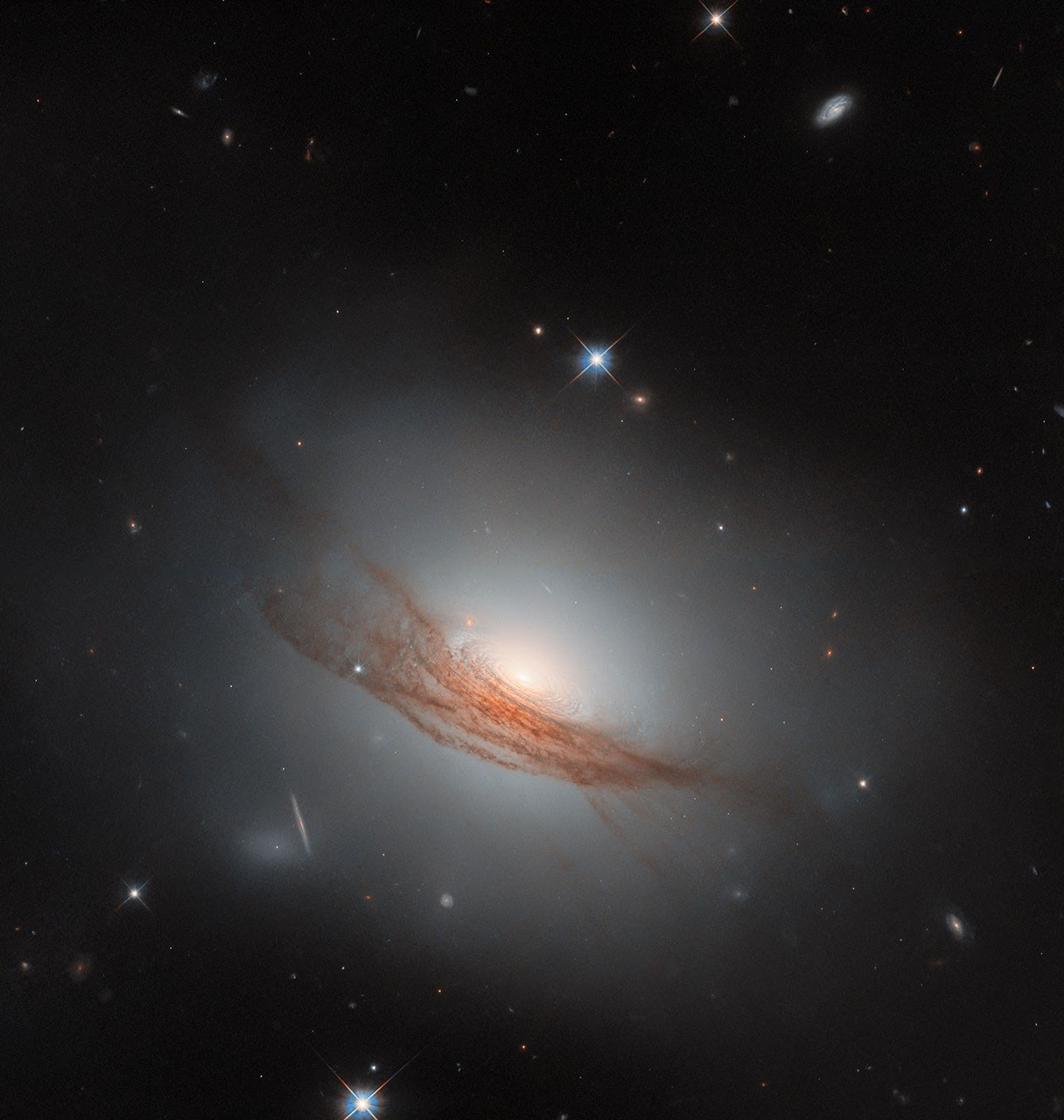
This NASA/ESA Hubble Space Telescope image of NGC 7722, a lenticular galaxy located about 187 million light-years away, features concentric rings of dust and gas that appear to swirl around its bright nucleus.
Read More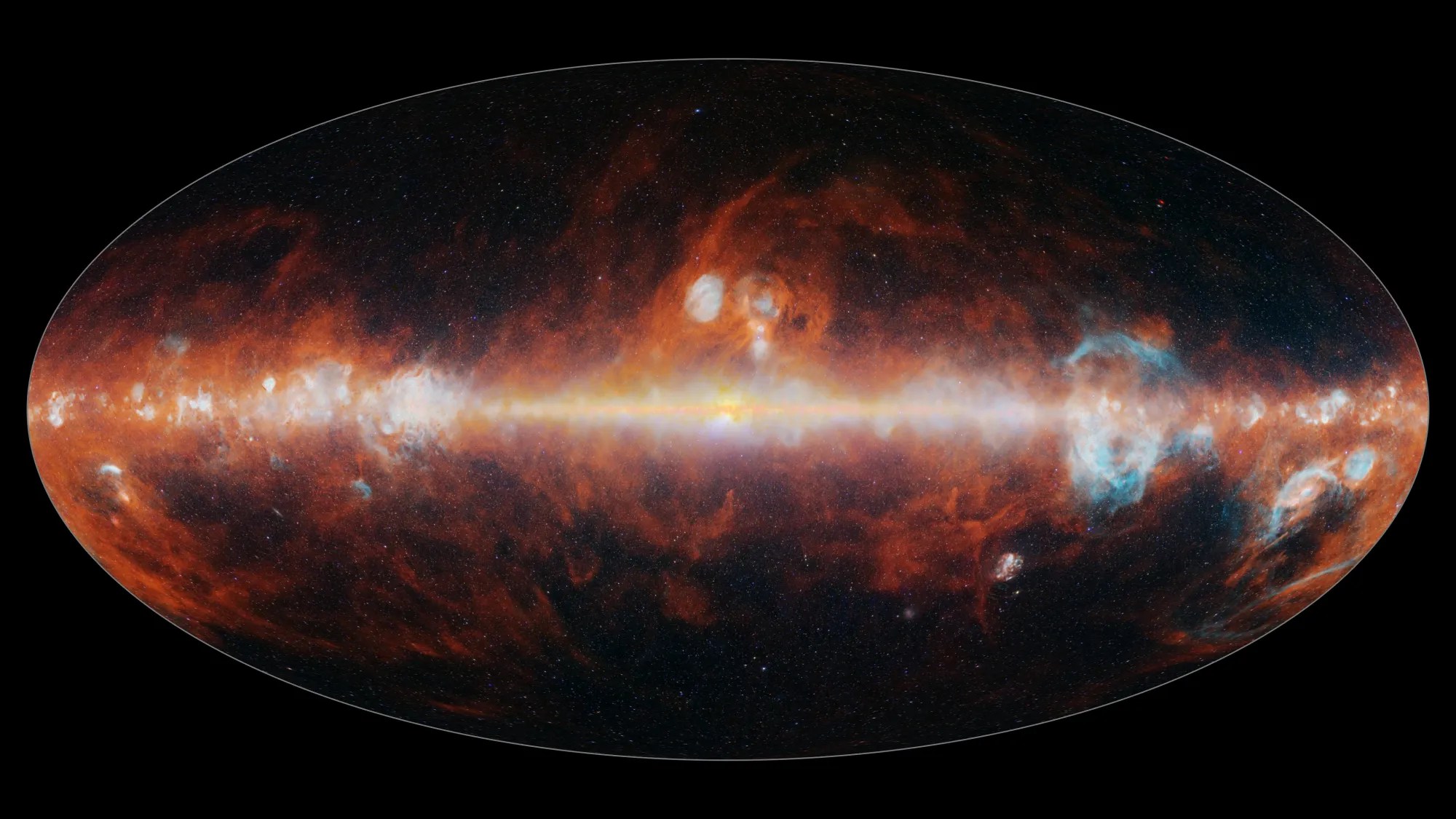

NASA’s SPHEREx Observatory has mapped the entire sky in 102 infrared colors, as seen here in this image released on Dec. 18, 2025. This image features a selection of colors emitted primarily by stars (blue, green, and white), hot hydrogen gas (blue), and cosmic dust (red).
Read More
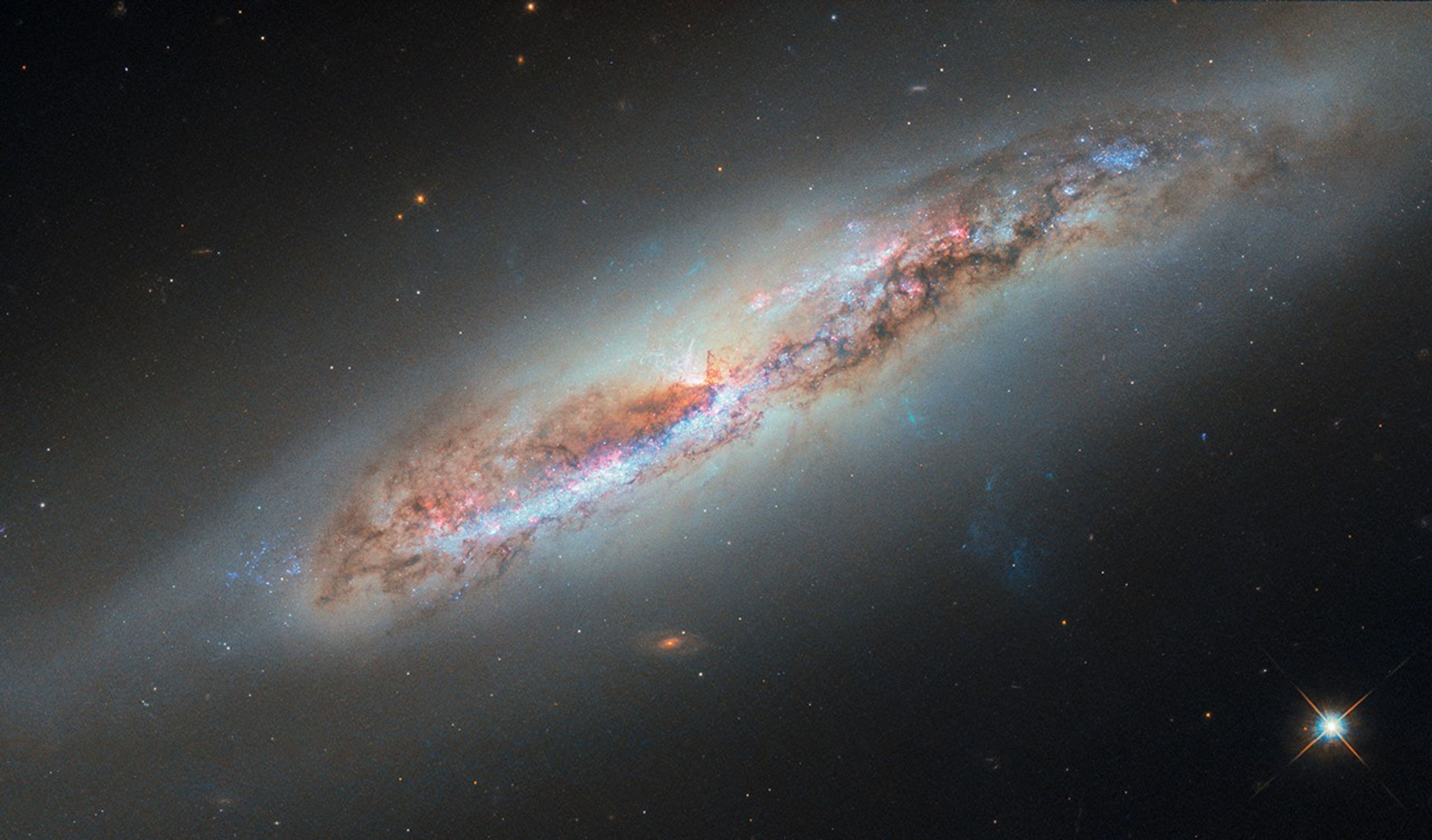
This NASA/ESA Hubble Space Telescope image features the galaxy NGC 4388, a member of the Virgo galaxy cluster.
Read More
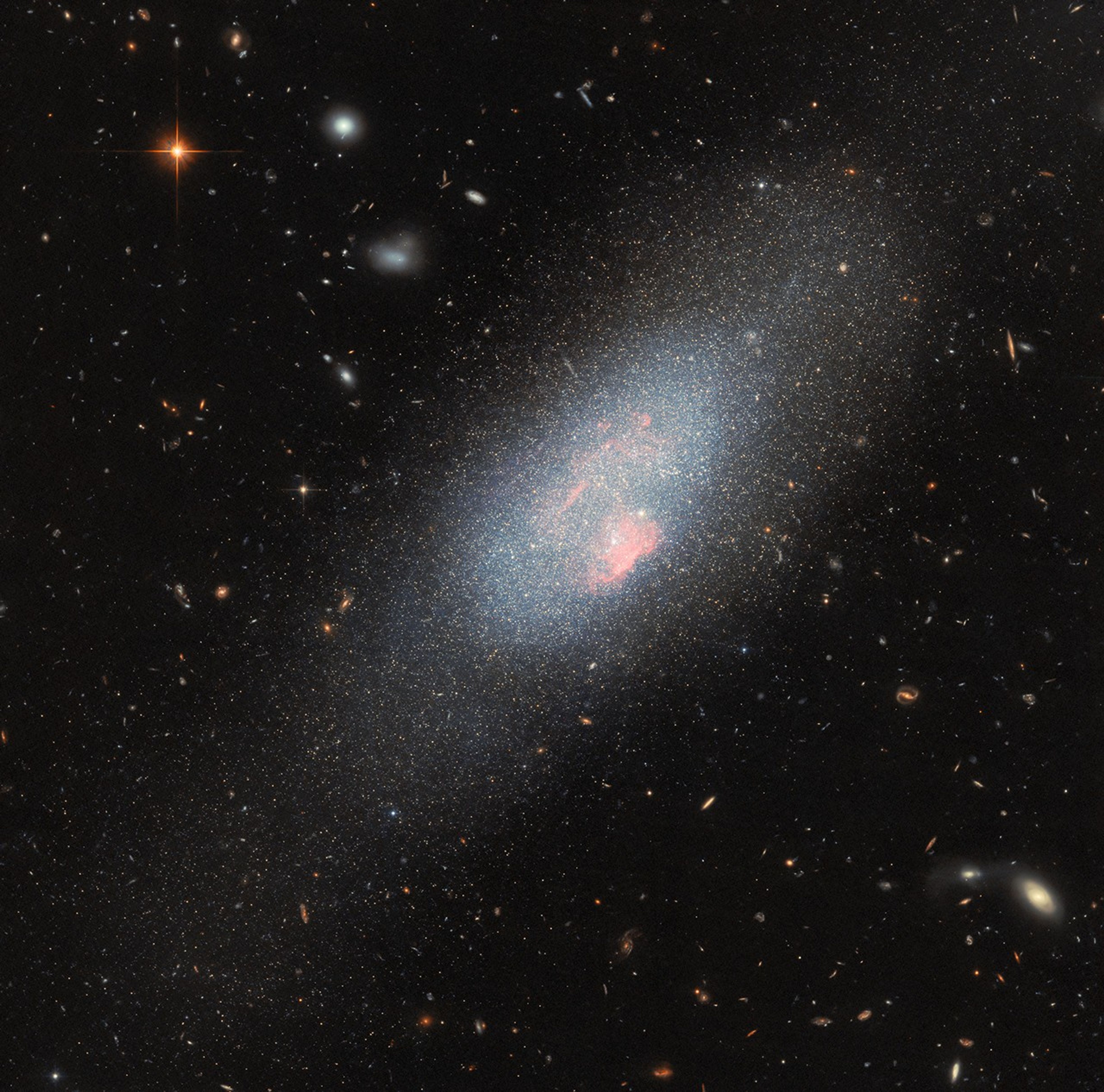
This NASA/ESA Hubble Space Telescope image features the blue dwarf galaxy Markarian 178 (Mrk 178) against a backdrop of distant galaxies in all shapes and sizes. Some of these distant galaxies even shine through the diffuse edges of Mrk 178.
Read More


This NASA/ESA Hubble Space Telescope image features a galaxy, NGC 2775, that’s hard to categorize.
Read More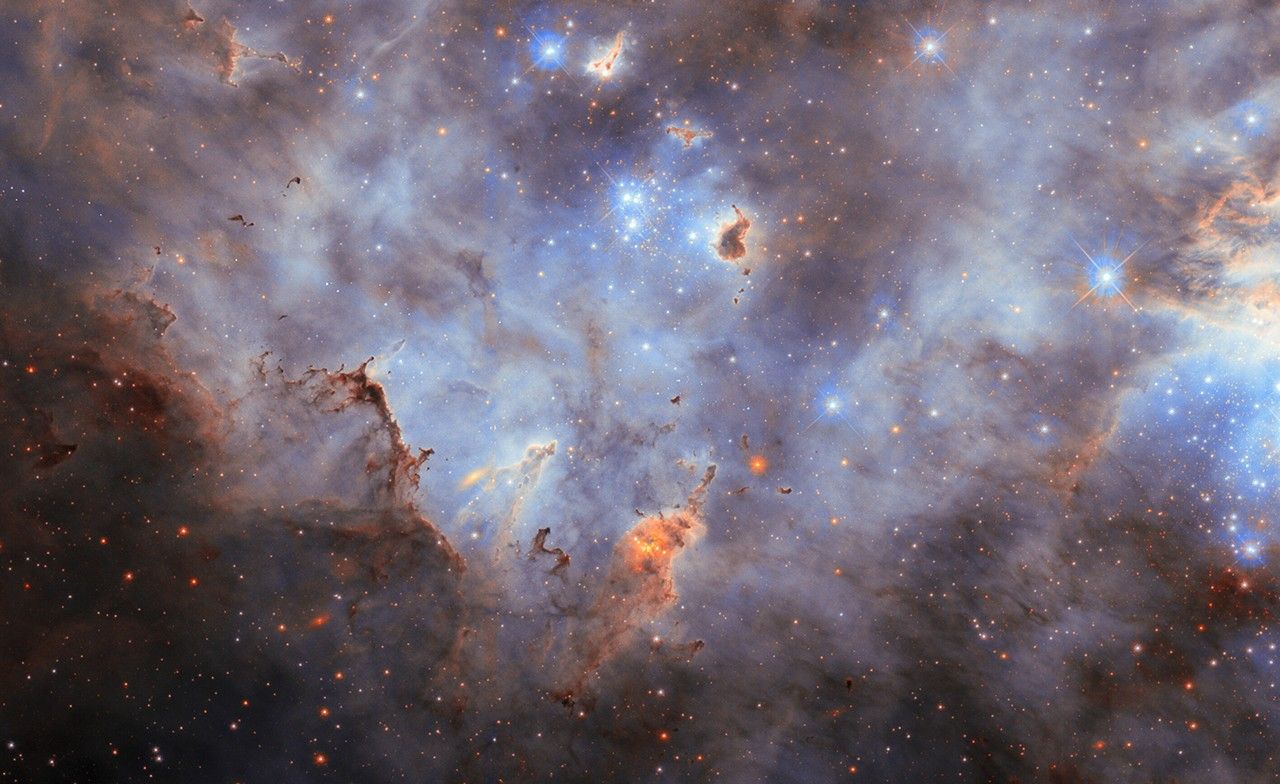


Dinner is served aboard the International Space Station! One tray features shrimp cocktail on whole grain wheat crackers, while the other holds sushi made with seaweed, Spam, tuna, and rice.
Read More

This NASA/ESA Hubble Space Telescope image features the spiral galaxy NGC 3285B, a member of the Hydra I cluster of galaxies.
Read More


This NASA Hubble Space Telescope image features a dense and dazzling array of blazing stars that form globular cluster ESO 591-12.
Read More



This NASA/ESA Hubble Space Telescope image features a cloudscape in the Large Magellanic Cloud., a dwarf satellite galaxy of the Milky Way.
Read More

This NASA/ESA Hubble Space Telescope image features the remote galaxy HerS 020941.1+001557, which appears as a red arc that partially encircles a foreground elliptical galaxy.
Read More

This NASA/ESA Hubble Space Telescope image features a peculiar spiral galaxy called Arp 184 or NGC 1961.
Read More

This NASA/ESA Hubble Space Telescope image features the spiral galaxy Messier 77, also known as the Squid Galaxy.
Read More

This NASA/ESA Hubble Space Telescope image features the globular cluster Messier 72 (M72).
Read More

In northwest Australia, the Great Sandy Desert holds great geological interest as a zone of active sand dune movement. While a variety of dune forms appear across the region, this astronaut photograph features numerous linear dunes (about 25 meters high) separated in a roughly regular fashion (0.5 to 1.5 kilometers apart).
Read More

This NASA/ESA Hubble Space Telescope Picture of the Week features a sparkling spiral galaxy paired with a prominent star, both in the constellation Virgo. While the galaxy and the star appear to be close to one another, even overlapping, they’re actually a great distance apart.
Read More

This NASA/ESA Hubble Space Telescope image features a supernova remnant called the Veil Nebula. This nebula is the remnant of a star roughly 20 times as massive as the Sun that exploded about 10,000 years ago.
Read More